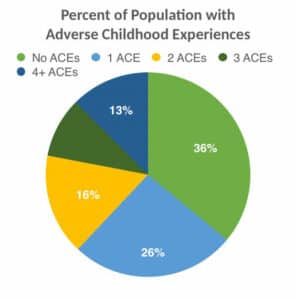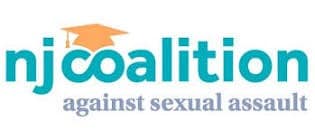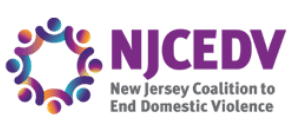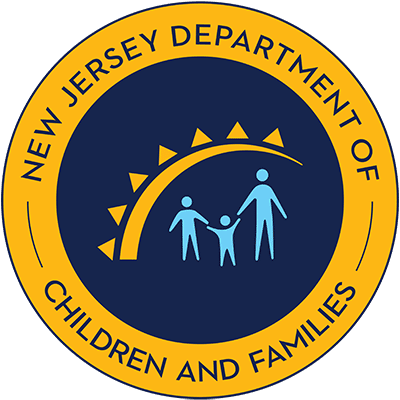A blog post that explains Adverse Childhood Experiences and childhood trauma’s effects over a lifetime.
For nearly all of 2020, our news and social media has been dominated by the COVID-19 global pandemic. As of October 1, there were 34.1 million positive cases and just over 1 million deaths across all countries. There is no question this pandemic has had devastating consequences for many families.
Yet, there is another public health crisis facing our nation’s youth that rarely makes the news and in fact many have not heard of it. This global crisis starts in childhood and not only impacts the person throughout life, but can impact generations to come and can cost our country BILLIONS of dollars a year in healthcare costs. Adverse Childhood Experiences (ACEs) is a public health crisis impacting our society and is currently being exacerbated by the Covid-19 pandemic.
Adverse Childhood Experiences is the term given to describe all types of abuse, neglect, and other traumatic experiences that happen to individuals under the age of 18. In a landmark study during the mid-1990’s, researchers looked at 17,000 patients who were having physical exams at Kaiser Permanente’s San Diego Health Appraisal Clinic. The researchers had the patients complete a confidential survey about their childhood experiences and their current health status and behaviors.
The ACE study looked at three categories of adverse experience:
- childhood abuse, which included emotional, physical, and sexual abuse;
- neglect, including both physical and emotional neglect; and
- household challenges, which included growing up in a household were there was substance abuse, mental illness, domestic violence, parental separation/divorce, or incarceration of household member.
An ACE score is like as a cholesterol score for childhood trauma. Respondents were given an ACE score between 0 and 10 based on how many of the 10 types of adverse experiences they reported experiencing. Each type of trauma counts as one, no matter how many times it occurs. The results are in the pie chart below. While slightly more than one-third of adults reported no Adverse Childhood Experiences, a remarkable percentage of adults – nearly two-thirds – had at least one ACE. Over one-third, or 38%, experience multiple ACEs.

How can adverse experiences in childhood have such a profound effect throughout a person’s life?
First, adverse childhood experiences can be traumatic, which in turn cause toxic stress responses that have immediate and long-term adverse physical and mental impacts. Toxic stress can reduce optimal health and development at the genetic level, as well as impacting brain function, the immune system, and organ function. Individuals may not form healthy coping strategies, which can affect health behaviors and physical and mental health. Second, ACEs have also been linked to reduced educational attainment, employment, and income, which directly and indirectly affect health and well-being.
Understanding how ACE’s impact the lives of child witnesses of domestic violence better helps organizations like Safe+Sound Somerset provide services that lead all family members impacted by domestic violence to safety and healing.
Kaiser Permanente’s study included children witnessing domestic violence against the caregiver (usually the mother) in the category of “household challenges.” Domestic violence includes physical abuse but also verbal, psychological and emotional abuse. The abuse creates a “toxic stew” in the children’s environment that can lead to not only the health consequences found in the study, but also an increased risk as adults of becoming an abuser or finding themselves in a relationship in which they are abused. Healing the trauma of Adverse Childhood Experiences has a positive effect on that individual’s life by reducing or eliminating toxic stress and its impacts and can help in preventing future domestic violence in his or her life.
What is the impact of the pandemic on ACEs?
The coronavirus pandemic has amplified children’s risk of Adverse Childhood Events. Recent findings show stay-at-home orders and remote learning are having at least a short-term negative impact on children. Early studies are showing that the COVID-19 pandemic is making domestic violence and child abuse both more likely, and more extreme. Often, in a household with domestic violence, going to school can be an oasis from the turbulence for children, as well as provide an opportunity for safe adults to “check-in” on at-risk youth. Children thrive in an environment in which there is structure, routine, and positive supports. They can go to a teacher or guidance counselor if they are struggling. For children exposed to violence, attending school virtually may make it less likely that they will access school-based support and more difficult for them to fully engage (link to the learning article 3) in learning because of the environment in which they live. It is a public health crisis within a pandemic for our children.
The good news?
ACEs and their negative impacts CAN be reduced and even eliminated. Our work at Safe+Sound Somerset directly impacts children who are witnesses to domestic violence. We offer trauma-specific counseling for children, as well as adults, to heal from their experiences with domestic violence and provide a pathway to positive outcomes. You can read more about our evidence-based trauma treatment program, Trauma-Focused Cognitive Behavioral Therapy, for youth here (link to TFCBT article 2).
If you or someone else you know is in need of services or has questions about domestic violence, please call or text Safe+Sound Somerset’s 24/7 hotline at 866.685.1122. Additional information available at www.safe-sound.org.
To learn more about Adverse Childhood Experiences, please see:
Ted Talk: How Childhood Trauma Affects Health Across a Lifetime
Adverse Childhood Experiences Study









